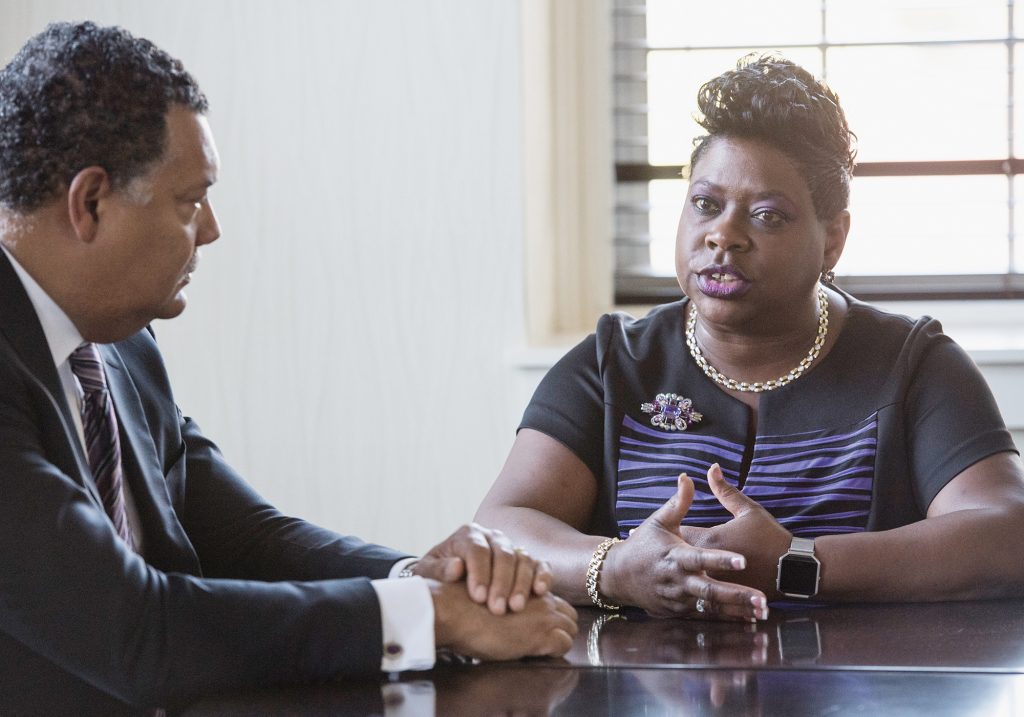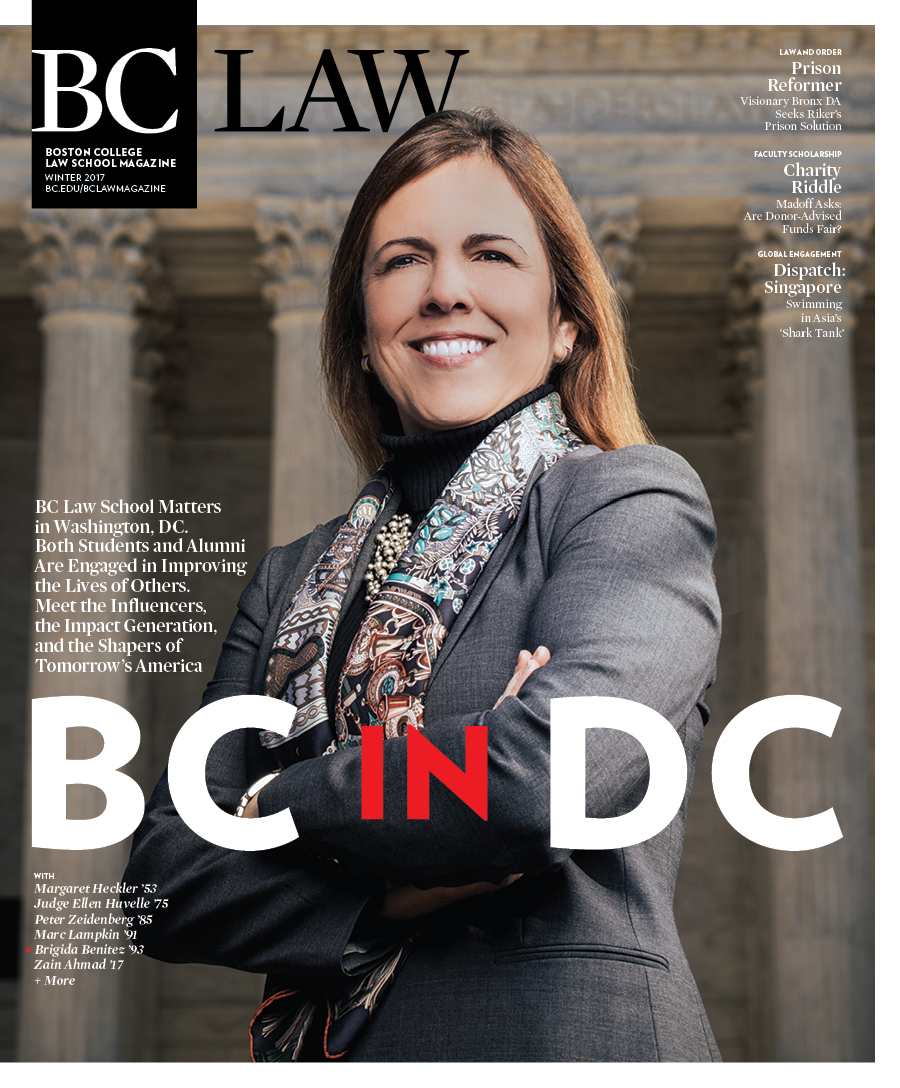Bronx District Attorney Darcel Clark, a 1983 graduate of BC, is the first woman district attorney of Bronx County and the first African American woman district attorney in New York State. A Bronx native, she served for sixteen years as a judge in New York trial and appellate courts. Clark’s bold initiatives include “Another Chance,” which so far has vacated 270 warrants for minor crimes, and a sweeping clean-up of New York’s notorious Riker’s Island. This is a conversation between Clark and BC Law Dean Vincent Rougeau.
DC: When I started, Riker’s Island was all over the newspapers. Cleaning it up is a concerted effort, but someone needed to take the lead. Riker’s Island is the worst “neighborhood” in the Bronx. It is my priority because it affects other neighborhoods outside the walls of that jail. Each person in that jail is connected to someone outside of the walls of that jail. Those walls are there, but they are not really there; you know why? Because the criminal network is still working within the jail. They are running their criminal enterprises from the jail. They are still running drugs, they are still buying guns, ordering shootings and homicides and everything else. Right from the jails. They are using their mothers. They are using corrupt corrections officers. The cases I am investigating now are in Riker’s as well as outside of Riker’s.
VR: The challenge for leaders is to pick that right thing to do first. It sets the tone and allows you to have success in other areas if you really focus on something that is particularly meaningful for the future.
DC: Some people blame prosecutors for mass incarceration—you know, the reason that there are so many people in jail is because you keep prosecuting them! That’s unfair. But at the same time, I get it, we need reform. I think it was well-intentioned back in the ’90s when crack was crazy and the drugs and the gangs and everything else. But not every single person who is in these jails and prisons is that bad that they should be in jail. I am in favor of criminal justice reform; low level, nonviolent people shouldn’t sit in jail because they are poor and can’t meet the bail. There have to be options for that. The diversion to drug courts, mental health court, veterans court, all kinds of courts to make alternatives to putting people in jail is the model now and it is better.
“I am in favor of criminal justice reform; low level nonviolent people shouldn’t sit in jail because they are poor and can’t meet the bail. There have to be options for that.” —Bronx District Attorney Darcel Clark
VR: And this whole problem of mass incarceration feeds directly into the issue of the breakdown of trust between the police and the people, which then feeds into the community. As a law school, we can promote more honest conversations about what is happening and bring people like ourselves to the entire spectrum of the issue, get our students out there so they are experiencing the realities of our criminal justice system, positive and negative, and then become advocates for change. The way things are right now is not sustainable.
DC: People don’t realize the implicit biases that they have internalized. The image of a gang member is some young black kid holding a gun. The image of the police is beating Rodney King, shooting Michael Brown, choking Eric Gardner. You know, that’s not necessarily what the police are about. People need to recognize that they have these biases. I’m going to start bringing that kind of training into my office.
VR: I think we can build understanding in communities by encouraging people to look for opportunities in places they may not be familiar with. Do you think it has helped community relations to have people from different places come to work for you in the Bronx?
DC: Yes! It is good to have a different set of eyes or a different set of ears that interprets the same thing differently. You can learn from that. We take for granted what we have around us. There’s a learning process when someone else looks at the same thing and sees it differently. I think the community can learn from that, too.
At the same time, my constituents appreciate that I am part of the community. I go to church with people. I’m in the supermarket with them. I go to the same gas station. We ride elevators together. There shouldn’t have to be a distinction. People are people. You have to walk among the same people; I think that is what the Bronx has done for me.
When I was a judge, I used to tell people, I sit up here. I don’t live up here. I think that being a judge has helped me be a better prosecutor because I am more balanced. I am not seeing things just one way. There is no tunnel vision. I look at things not just as an advocate, but as: What is right? and What is fair? Those are not just rhetorical questions. There are so many answers to that.



